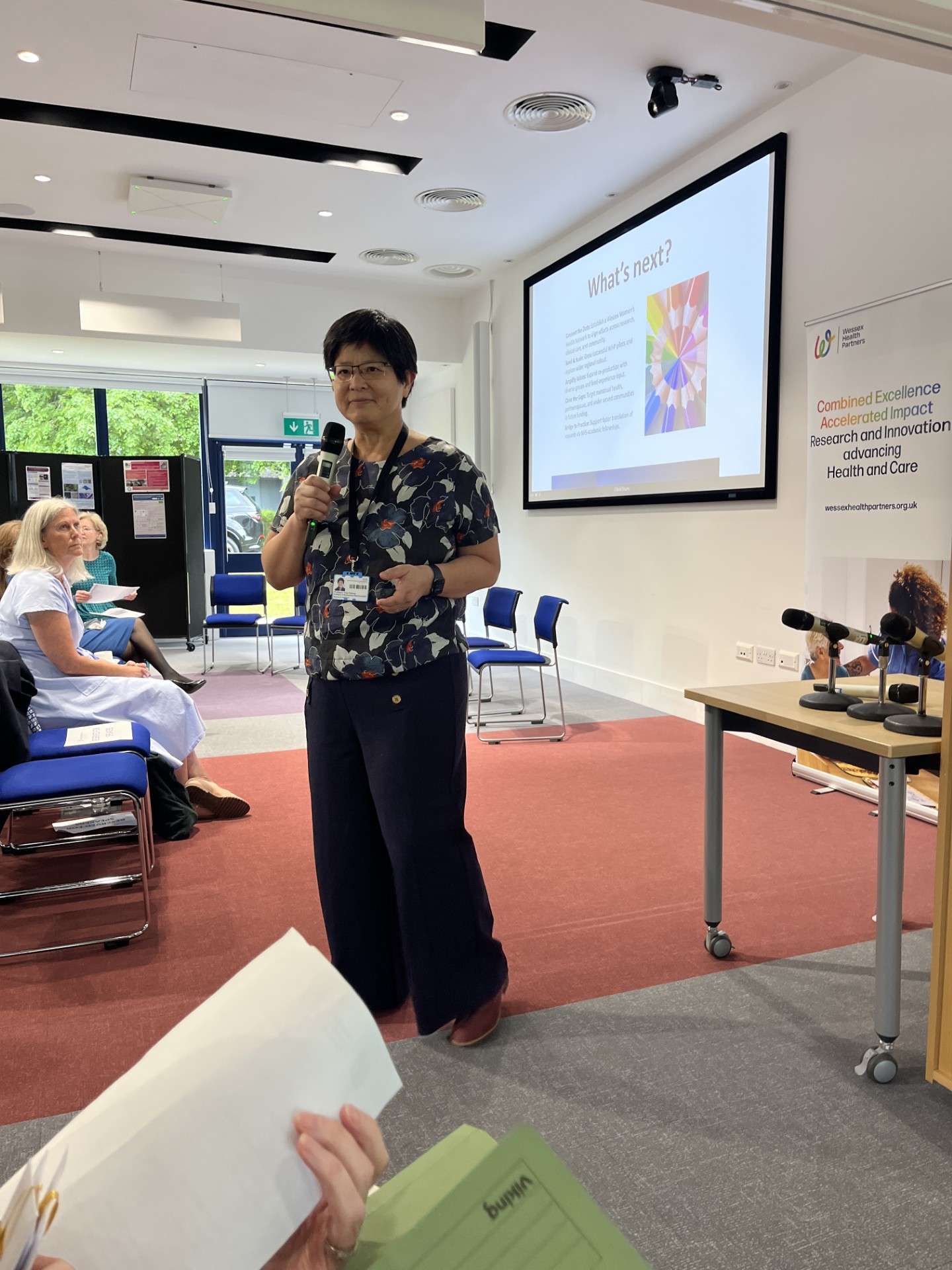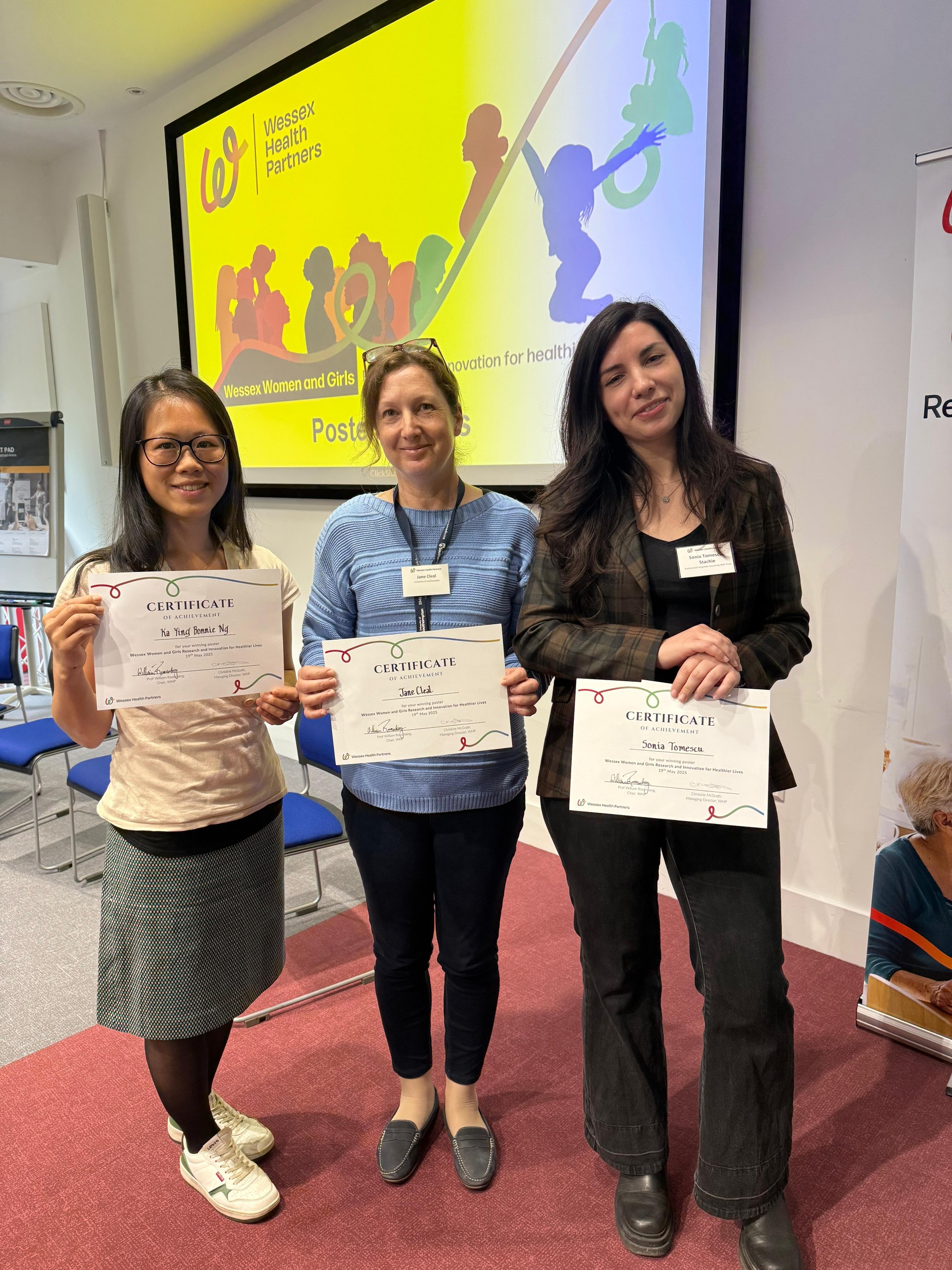Wessex Women and Girls Event brings together researchers and innovators to combine excellence and accelerate impact
More than 100 delegates gathered in the Axis Centre in Southampton Science Park to hear about work currently underway to address inequalities in women’s health, and what more can be done.
-
-
-
Christine McGrath and Katrina Cathie chatting
-
Audience listening intently
-
Alyx Taylor and Holly Spencer chatting
-
-
Side view of the audience
-
-
Kathy Wall, Desi Baramova and Jan Westbury chatting at the start
-
-
-
Katrina Cathie and Prof William Rosenberg
Keynote speaker Professor Judith Rankin, Newcastle University, spoke of the women’s health gap which exists globally. Whilst women’s life expectancy has increased from 30 to 73 years between 1800 and 2018, women spend an average of nine years in poor health.
She said: “This poor health impacts on women’s home life, in their workplace, in the community, and reduces a woman’s earning potential. There has long been a lack of priority in women’s health and a low investment in women’s health conditions … women are under-represented in all types of research…. There really is the need to support women to live longer and lead healthier lives, with a focus on the most disadvantaged.”
She said the Department of Health & Social Care’s 2022 Women’s Health Strategy is proving an important driver for change. “But to really impact on women’s health we will also need long term cultural and system changes and for organisations to work together. Women’s voices need to be heard and listened to in all that we do … change will take time, and we can all play a role in raising awareness of women and girls’ health issues.”
Professor Joanna Wakefield-Scurr, University of Portsmouth, also known as "The Bra Professor", spoke of her work in breast health. Up to 72% of exercising females experience breast pain even elite athletes suffer. “Breast pain affects half the UK female population and is a significant barrier to exercise … Let’s normalise the conversation around breasts and bras.”
Researchers covered many topics including maternal disparities, pre-conception, the development of apps, women’s cancer and the menopause.
Delegates heard more about the breadth and depth of women and girls' research and innovaton in our region, and how this is informing improvements in local health and care systems. We also heard how the WHP Small Grants Scheme is supporting new regional R&I collaborations and projects focused on the needs of women and girls.
Research can and does translate into reality – the uptake of an app to support pelvic floor dysfunction being one example.
“However, this does take time,” explained Gemma Snell of Health Innovation Wessex. “Transformation in the NHS can take around three to five years – you need to keep going.”

Professor Ying Cheong, University of Southampton, said: “The Wessex Women and Girls event has lit a spark, bringing together bold ideas, brilliant people, and a shared commitment to change. Now is the time to scale the impact: to connect, co-create, and close the gaps in women’s health with urgency, equity, and ambition.”
Desi Baramova, Wessex Health Partners Programme Coordinator, said: “This event was a testament to the dedication and expertise of those committed to advancing the health of women and girls through research and innovation in Wessex. The thoughtful discussions, evidence-based presentations, and collaborative efforts demonstrated the immense potential for continued partnership. I look forward to seeing what the future holds.”
As part of the event, researchers were invited to submit a poster. The winners are:
Sonia Tomescu (Portsmouth Hospitals)
A psycho-oncology inquiry into the biopsychosocial needs of women affected by gynaecological cancers
Jane Cleal (University of Southampton)
Characterising motile cilia on the luminal surface of the endometrium
Ka Ying Bonnie Ng (University of Southampton)
Women with recurrent miscarriage have altered uterine natural killer cell receptor expression profiles
The ambition is to develop a Wessex wide Women and Girls R&I network, working together to further research and innovation in the region.
Christine McGrath, Wessex Health Partners Managing Director, said: "It was a real pleasure to host this meeting on behalf of our partners. There is clearly a wealth of expertise in the region and enthusiasm to work together to address the gaps in women and girls' health. We have already seen benefits and look forward to building on these strong foundations."

 Professor Ying Cheong, University of Southampton, said: “The Wessex Women and Girls event has lit a spark, bringing together bold ideas, brilliant people, and a shared commitment to change. Now is the time to scale the impact: to connect, co-create, and close the gaps in women’s health with urgency, equity, and ambition.”
Professor Ying Cheong, University of Southampton, said: “The Wessex Women and Girls event has lit a spark, bringing together bold ideas, brilliant people, and a shared commitment to change. Now is the time to scale the impact: to connect, co-create, and close the gaps in women’s health with urgency, equity, and ambition.”